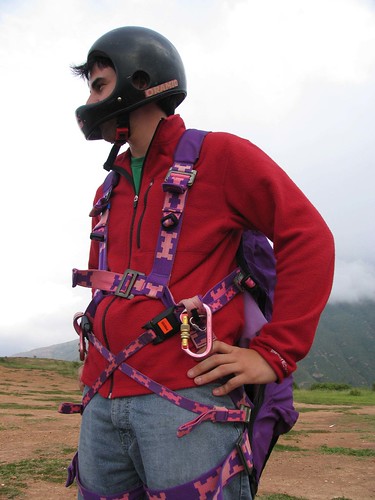What'd you say?
There’s loud, like college-town frat-party loud. You know the recipe: start with some thumping bass, sprinkle in staccato whoops and yelps, top with a crescendo of police sirens. Then there’s louder, like New York loud, with the screeching subway brakes, the blaring Midtown taxi horns, the screaming Wall Street brokers, the pulsing, writhing Williamsburg lounges. And then there’s Venezuela loud, which makes the sorority girl and the New Yorker cringe in disbelief and cover their ears, appalled.
When I went to Caracas a year ago, I quickly found out. Noise—decibel upon decibel of eardrum-popping noise—was everywhere, from the baseball stadiums to the bars to the streets to even the hotels. You couldn’t escape it. It rang in your head and interrupted your sleep. But I figured that was just the capital. Moving out to Mérida, with its slower-paced Andean lifestyle and its semi-bohemian university-town feel, would be the perfect fix. If there were to be a softer side of Venezuela, Mérida would be the place.
Not so much.
From Day One, our ears were under assault. In Plaza Bolívar, in the city’s center, hair-raising political songs (brought to you by Chávez’s party, the Movimiento Quinta República, or MVR) attacked you from the enormous speakers that filled the beds of pickup trucks. When the national soccer team, La Vinotinto, finally won a game, soccer-crazy Merideños packed the streets, filling the city with shouts and screams and car horn anti-melodies. A few weeks ago the elections ended, and parade after parade turned Avenida 4 into a shaking line of red-tinted, MVR sound. And last night, while on a quick beer run near my friend Andreína’s house, some kids decided to chuck a cherry bomb out their car window—about 20 feet from my head. The fact that I was catatonic and basically deaf after the explosion was one thing; the fact that Brooke, 400 yards away in Andreína’s sixth-floor apartment, jumped and nearly messed herself is quite another.
I suppose those are exceptions. The daily rhythm, though, is enough to make suburban Connecticut seem like an auditory paradise. From the rooster squawking at 4 in the morning to our downstairs neighbor belting out made-up lyrics to her favorite Venezuelan love songs four hours later, it’s dizzying and nauseating. Add in the fact that our apartment has high ceilings (great for echoes) and sits between two vertical corridors (ditto), and you’ve got noise on top of reverberated noise, rendering normal earplugs useless.
Take right now, for example. I’m sitting here, typing. I can hardly hear the clacking of the keyboard because of P. Diddy’s “I’ll Be Missing You” flying up the corridor from downstairs. Is there anything worse than a Venezuelan man singing, in falsetto, Faith Evans’ part in a Biggie tribute? I’ll help you with that one. No way. Not possible.
Let’s put it this way: If there ever were an Aural World War, the best you could hope for from the Battle of Mérida would be a Pyrrhic victory. The good guys might win, but at what cost? Forget the story about Loca Luz Caraballo going crazy because she lost her sons to Bolívar’s army. She knew how out-of-control loud this place would be after winning independence, so she just threw up her hands and said, “Fuck this.”
The only way to combat noise, then, is with more noise. Can’t write because of a juiced-up Juanes CD downstairs? Crank up the iPod. Can’t hear the announcers during the Magallanes-Caracas game? Jack up the TV’s volume. Can’t hear your friend at the bar because of the 10-foot subwoofer next to your head? Yell louder.
Soon enough, I’ll be typing LIKE THIS, JUST SO I’M SURE YOU CAN HEAR ME.
In the end, I guess, pollution begets pollution.


0 Comments:
Post a Comment
<< Home